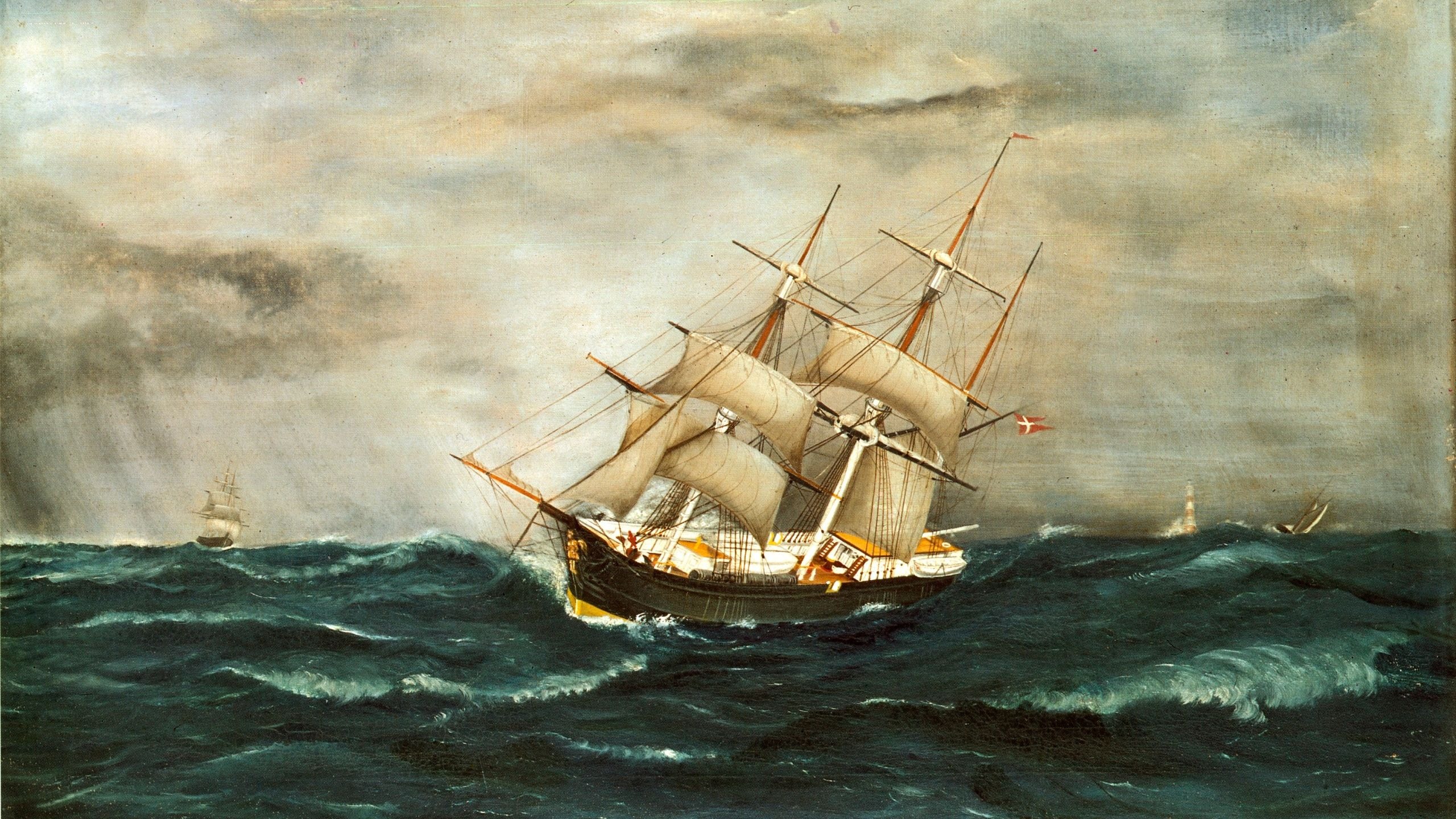
1886
Five generations of the Mærsk family
The founding family of the A.P. Moller Group comprises 150 years’ experience in shipping and world trade – from sailing ships to container vessels, from general cargoes in steam ships to oil cargoes in ultra large crude carriers, from telegrams to modern information technology and communication, from regional trades to global reach.
Peter Mærsk Møller supported his son A.P. Møller who in 1904 established what would later become A.P. Moller – Maersk. A.P. Møller’s son, Mærsk Mc-Kinney Møller, was the third generation and now Mærsk Mc-Kinney Møller’s daughter Ane Mærsk Mc-Kinney Møller is the Chair of both the A.P. Moller Foundation and its investment company A.P. Moller Holding, where her son, Robert Maersk Uggla, is the CEO.
Captain Peter Mærsk Møller (1836-1927)
Was part of one of the most significant changes in shipping; the move from sail to steam in the late 1800’s.
After 20 years as a master of sailing ships and the unfortunate wrecking of the schooner ‘Valkyrien’ in 1883, Peter Mærsk Møller completed the examinations to become a steamship master. In 1886, Captain Peter Mærsk Møller acquired the small steamer ‘Laura’, which supported the livelihood of his family of ten children by ploughing the waters of the Baltic and North Sea.
Peter Mærsk Møller had nearly 50 years’ experience in shipping when he stepped ashore in 1899 and devoted his efforts to supporting his children’s endeavours.
Peter Mærsk Møller was instrumental in acquiring the needed share capital to buy the company’s first ship in 1904 and remained interested in the business as it evolved until his death in 1927.
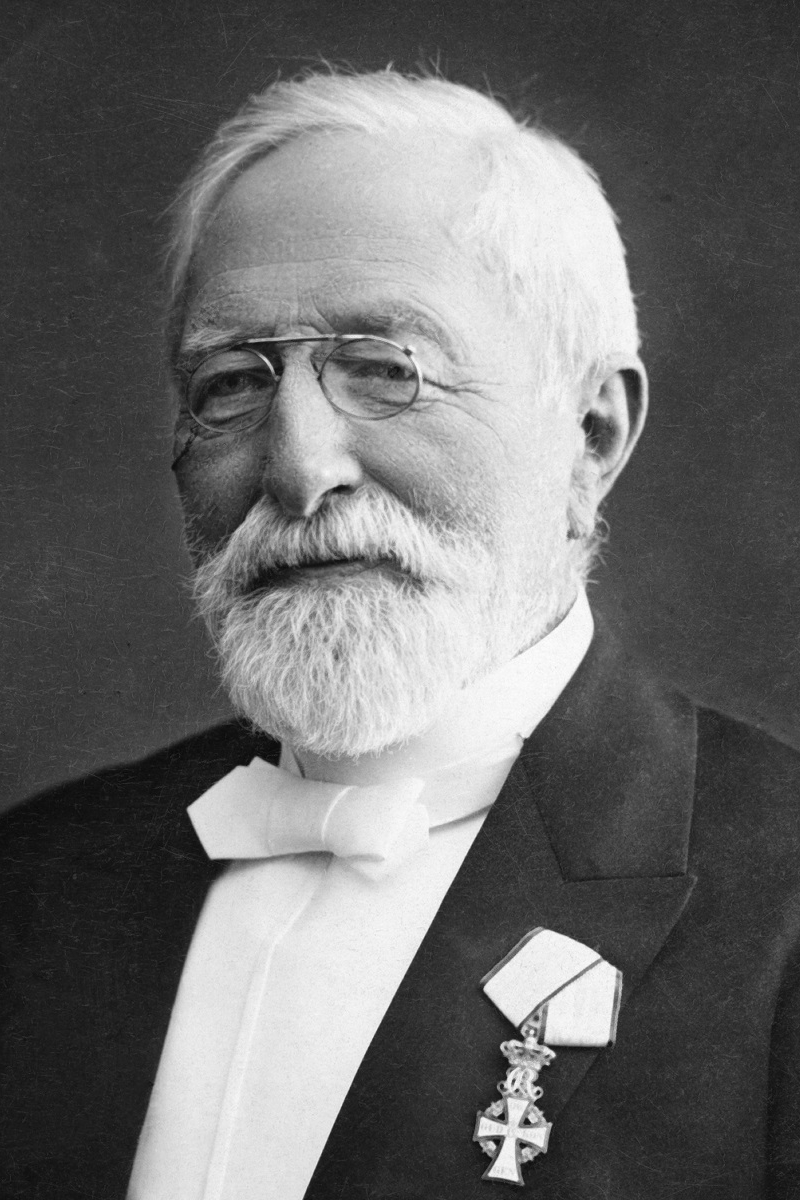
Arnold Peter Møller (1876-1965)
And his father, Peter Mærsk Møller, founded what would later become A.P. Moller – Maersk in 1904. Prior to this, A.P. Møller had worked in Denmark, England, Germany and Russia.
Initially, the family business was mainly focused on shipping. In 1928, A.P. Møller founded Maersk Line and acquired the company’s first five tankers. He also oversaw the company’s expansion abroad, starting in the United States in 1919, and continuing with the establishment of offices in Japan, the UK, Thailand, Hong Kong and Indonesia.
To enhance the company’s portfolio. A.P. Møller established several other businesses in the shipbuilding, agriculture and retail sectors. In 1962, he was awarded a concession to conduct explorations and extract raw materials from the Danish subsoil – an activity that eventually led to the formation of Maersk Oil.
A.P. Møller secured his family’s continued ownership control of the company, he built, when he established the foundation that now has the majority shareholding in A.P. Møller – Mærsk A/S. When A.P. Møller passed away in 1965, his son Mærsk Mc-Kinney Møller assumed presidency of the family’s foundations.
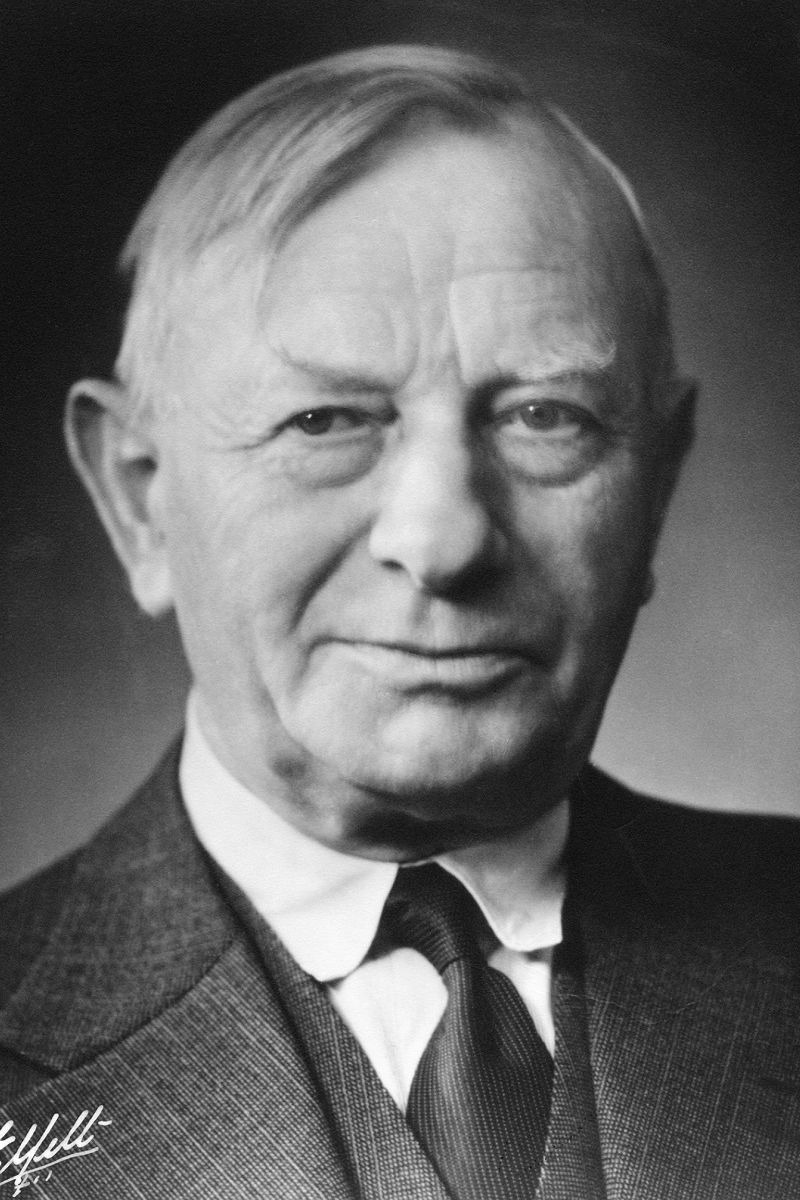
Mærsk Mc-Kinney Møller (1913-2012)
Continued to develop and expand the company with the establishment of new business units, the expansion of the exploration and production of oil and gas and the transition into container transport. A.P. Moller – Maersk was transformed into a group of businesses with global reach.
In addition to serving as CEO of A.P. Moller – Maersk and chairing the family foundations, Mærsk Mc-Kinney Møller also served on the board of IBM Corporation from 1970 to 1984, on the Advisory Board of IBM from 1984 to 1993 and as a member of the International Council Morgan Guaranty Trust Co. from 1967 to 1984.
Mærsk Mc-Kinney Møller set the direction with a Group-wide strategy in 1970 and remained the CEO until 1993, when he initiated the next phase: the introduction of non-family management with the founding family retaining ownership control via the A.P. Moller Foundation.
In 2003, Mærsk Mc-Kinney Møller introduced five ‘Core Values’ based on A.P. Møller’s leadership principles and personal example. Mærsk Mc-Kinney Møller stepped down from most presidency in the A.P. Moller Group in 2003, but remained strongly committed to the company and Chair of the A.P. Moller Foundation until his death in 2012.
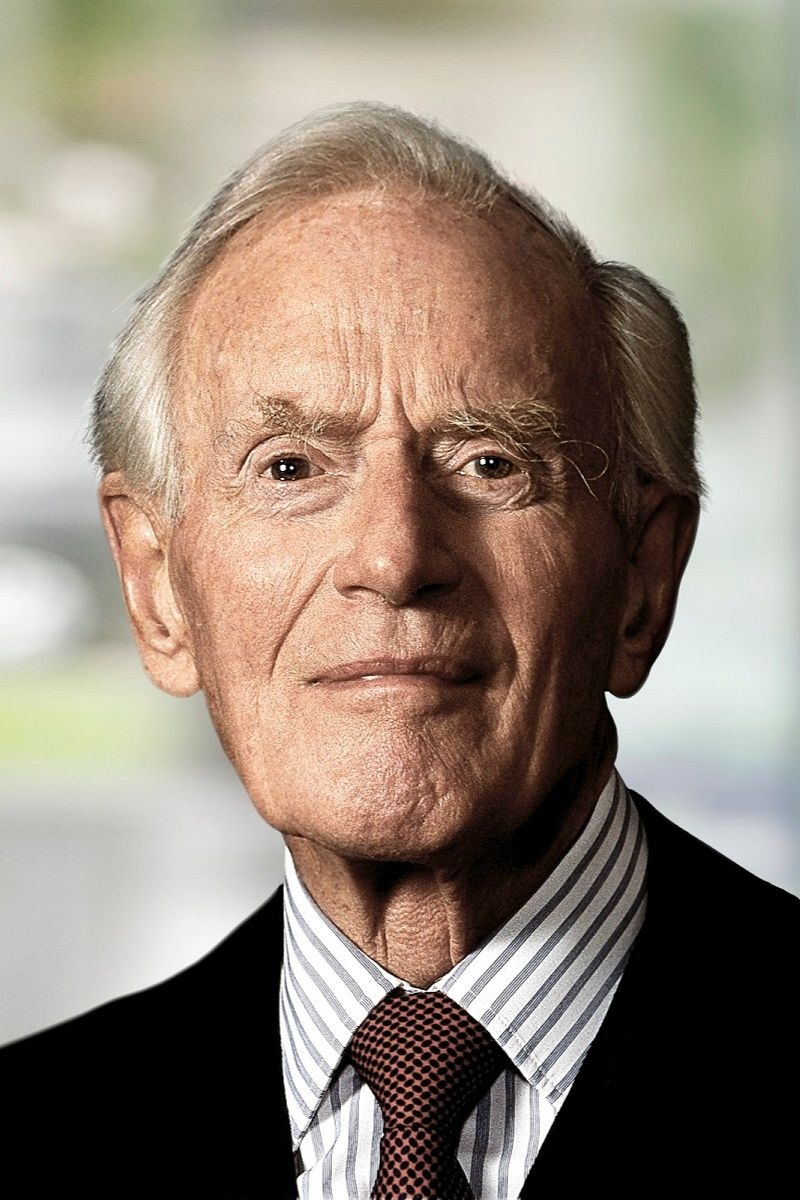
Ane Mærsk Mc-Kinney Uggla (1948-)
Is the youngest daughter of Emma and Mærsk Mc-Kinney Møller. After completing a degree in foreign languages, Ane M. M. Uggla married Colonel Peder Uggla and settled in Stockholm, where she completed an additional degree in philosophy.
Ane M. M. Uggla has served as a board member of the A.P. Moller Foundation and the A.P. Moller Relief Foundation since 1986. When her father passed away in 2012, Ane M. M. Uggla assumed the presidency of both foundations.
Ane M. M. Uggla led the formation of A.P. Moller Holding in 2013 and subsequently the changes in the organisational structure of the A.P. Moller Group that were started in 2016.
In addition to chairing both family foundations and A.P. Moller Holding, Ane M. M. Uggla serves as Vice Chair of the A.P. Moller – Maersk Board of Directors. Outside the family firm, Ane M. M. Uggla has worked for the Swedish Red Cross since 1986.
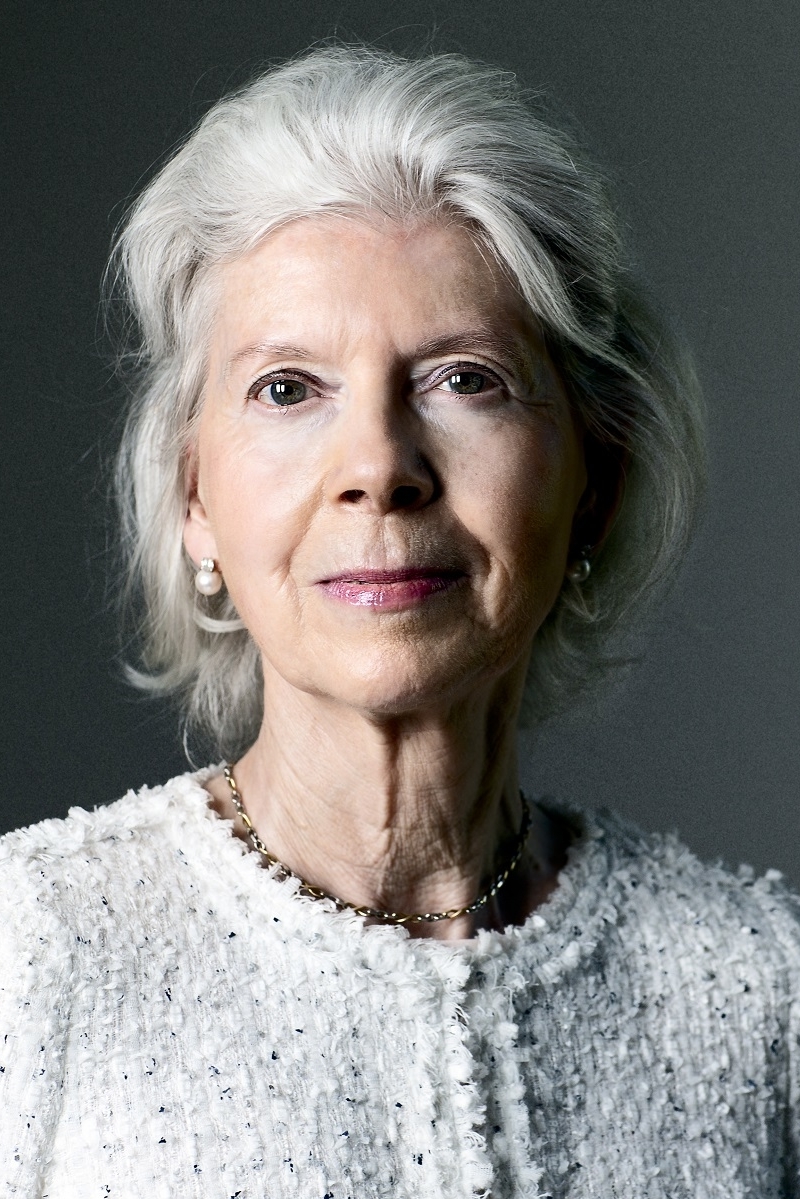
Robert Maersk Uggla (1978-)
Is the son af Ane M. M. Uggla. He studied at the Stockholm School of Economics and later at the Univerità Commerciale Luigi Bocconi, Harvard Business School, The Wharton School of the University of Pennsylvania and IMD.
After a brief stint in the finance industry, Robert M. Uggla joined the A.P. Moller Group in 2004, initially in the Mergers & Acquisitions field. During 2006-2016, Robert M. Uggla held various leadership positions in Maersk Line, Maersk Tankers and Svitzer before joining A.P. Moller Holding as CEO in 2016.
Robert M. Uggla has led the build-up of the A.P. Moller Holding team to become the investment arm of the A.P. Moller Foundation.
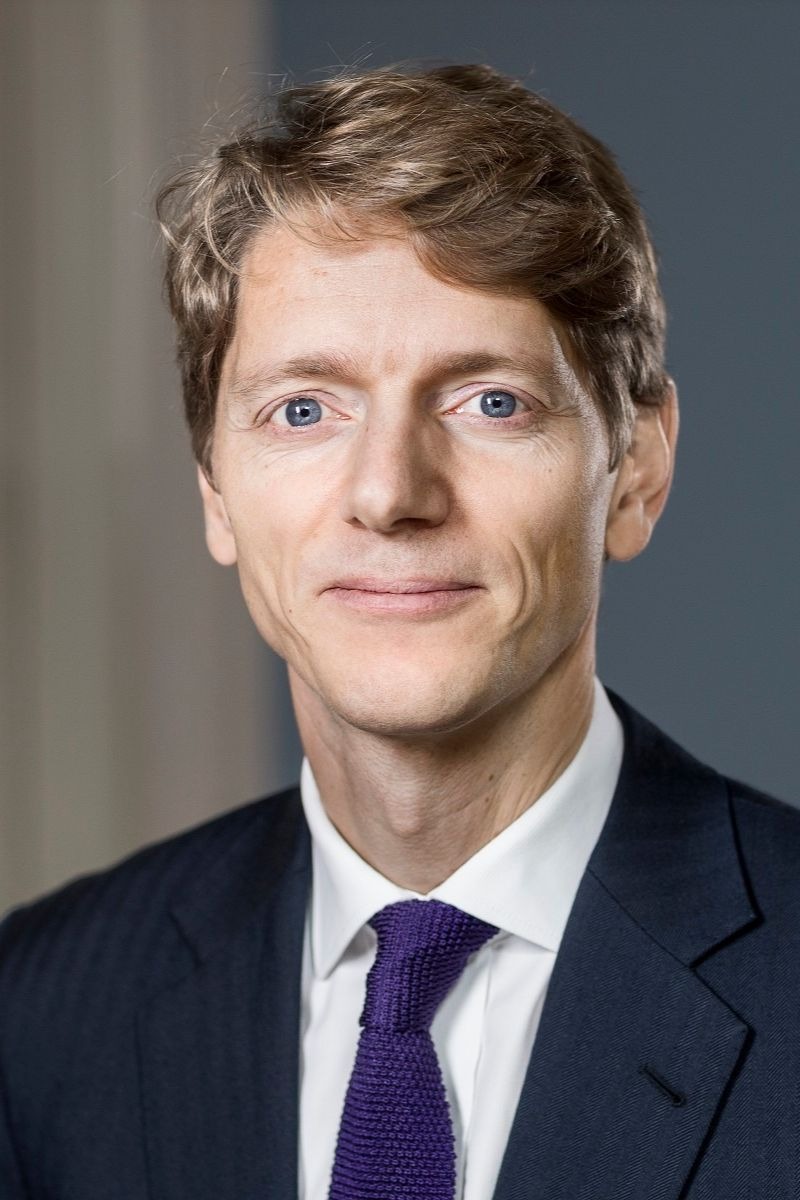
1886

Five generations of the Mærsk family
Based on more than 20 years of experience as a captain on sailing ships, Peter Mærsk Møller acquired the small steamer ‘Laura’ and took the family company from sail to steam.
1904
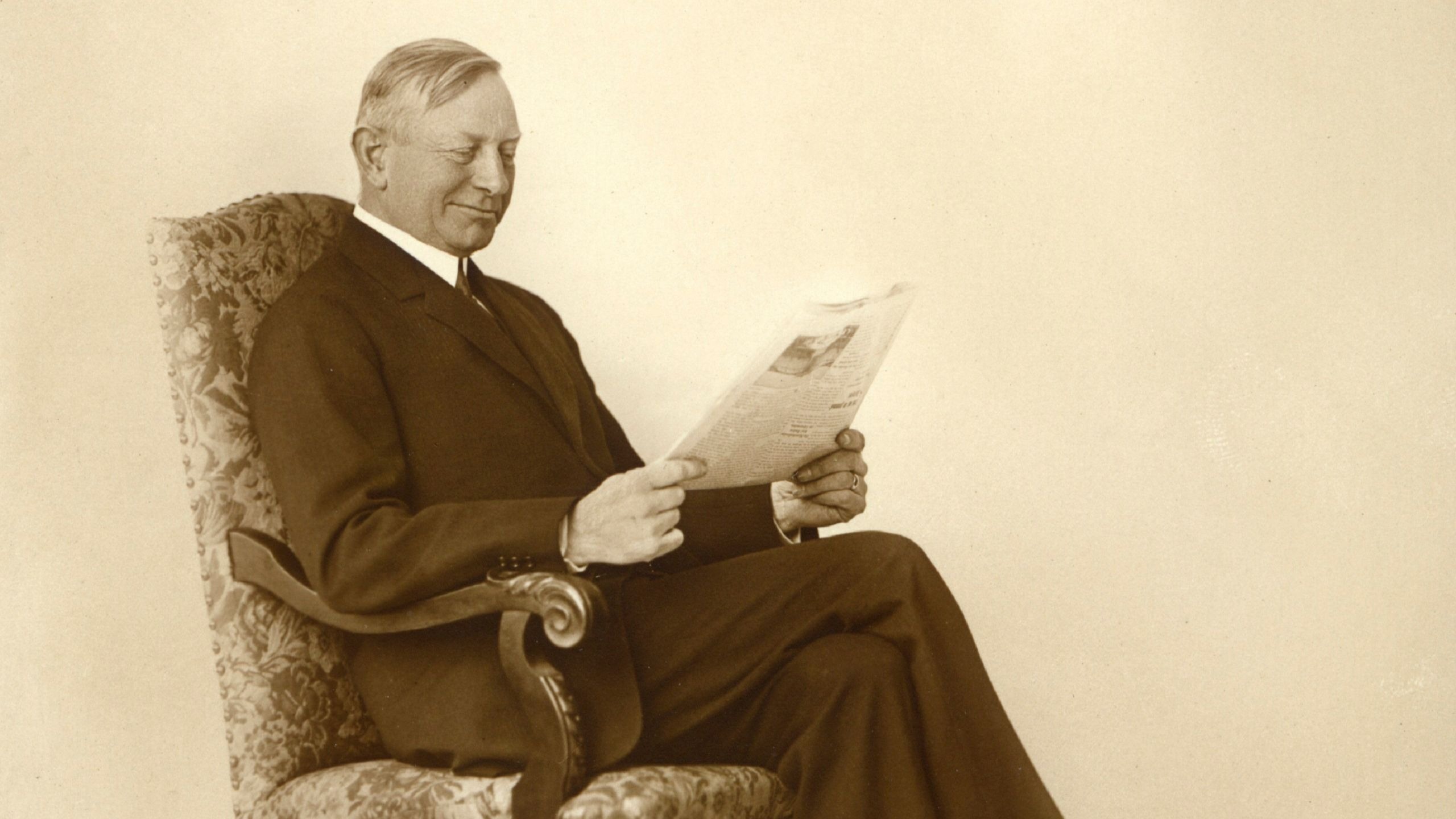
The Mærsk family companies
A.P. Møller, strongly supported by his father, captain Peter Mærsk Møller, established the Steamship Company Svendborg, the forerunner of today’s A.P. Moller – Maersk.
1912
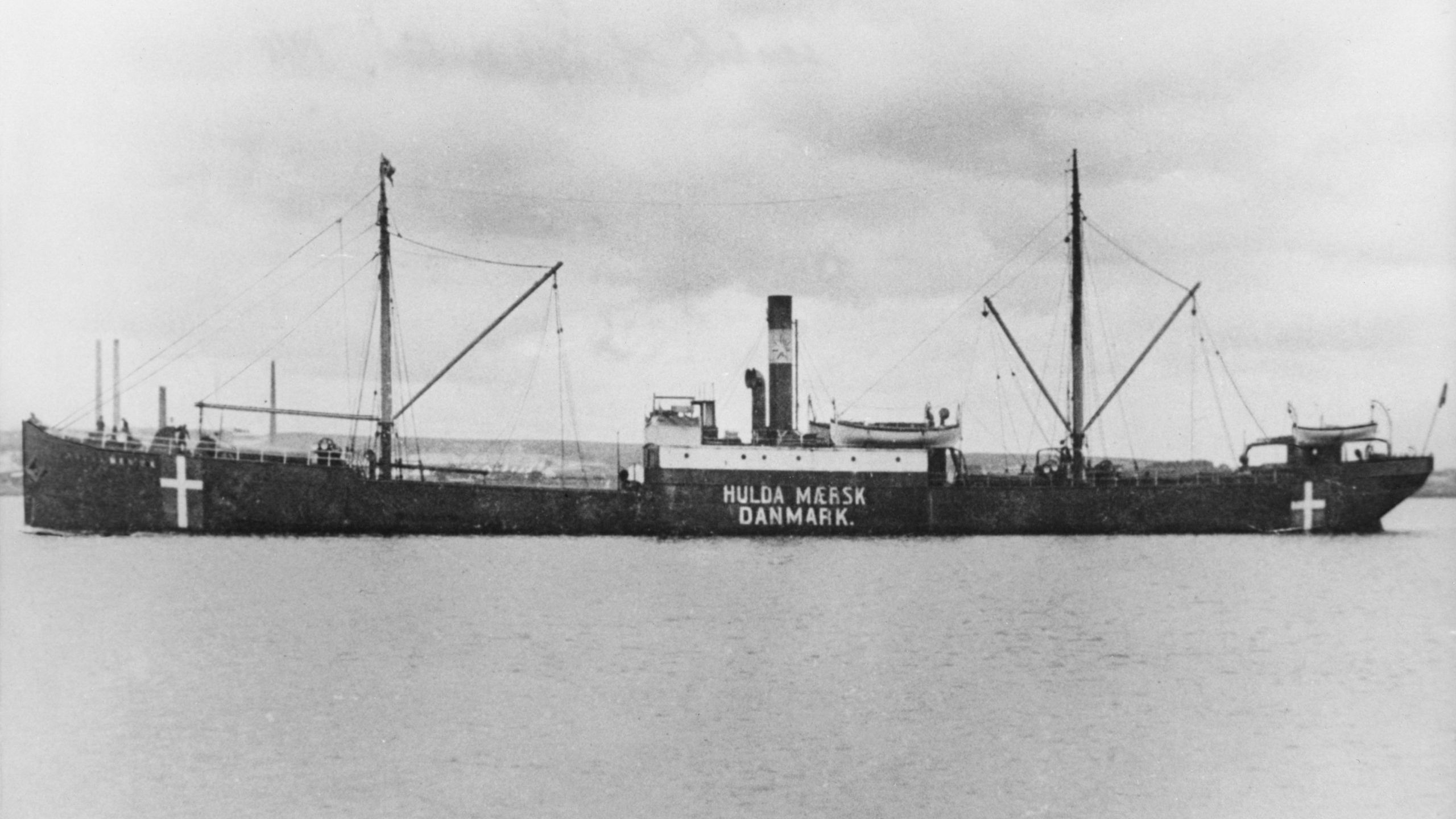
The calculated risk – starting a business
A.P. Møller founded the Steamship Company of 1912. The objective was to create a base for growth.
1913
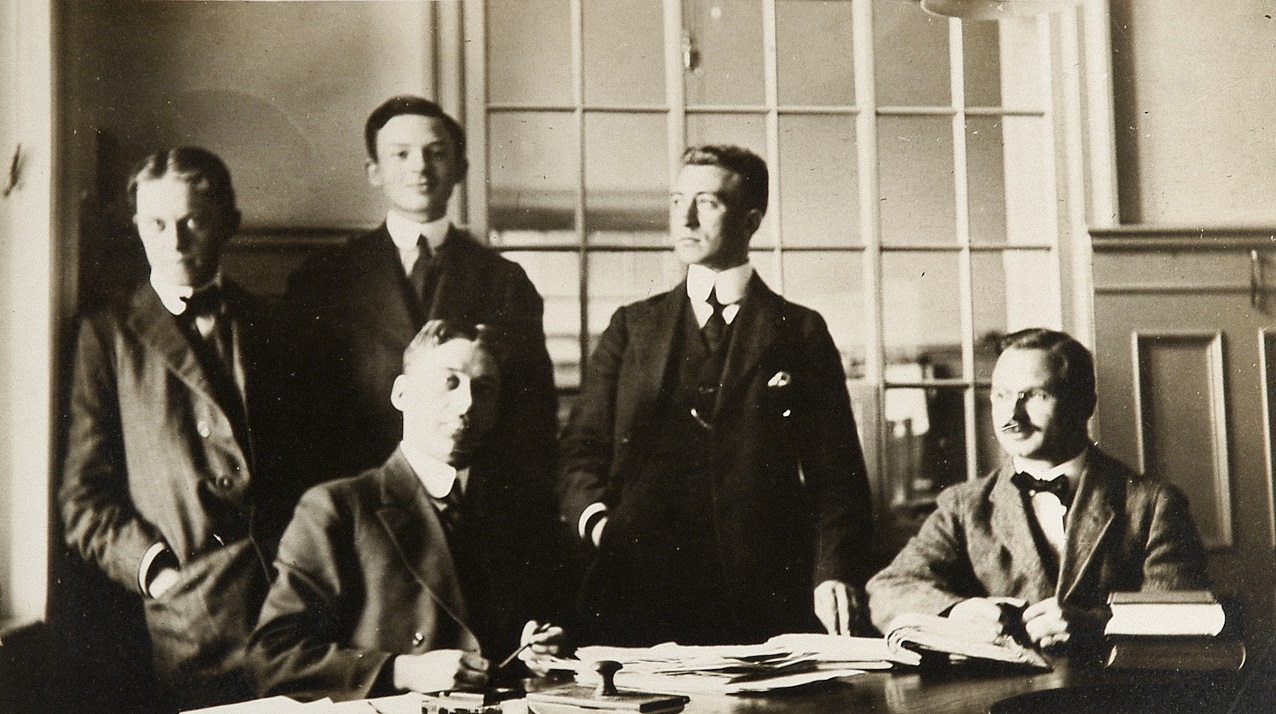
Growth and consolidation
A.P. Møller set up a small office to act as the manager of the fleets of the Svendborg and 1912 companies. The first transactions in brokerage of ships and cargoes took place.
1928
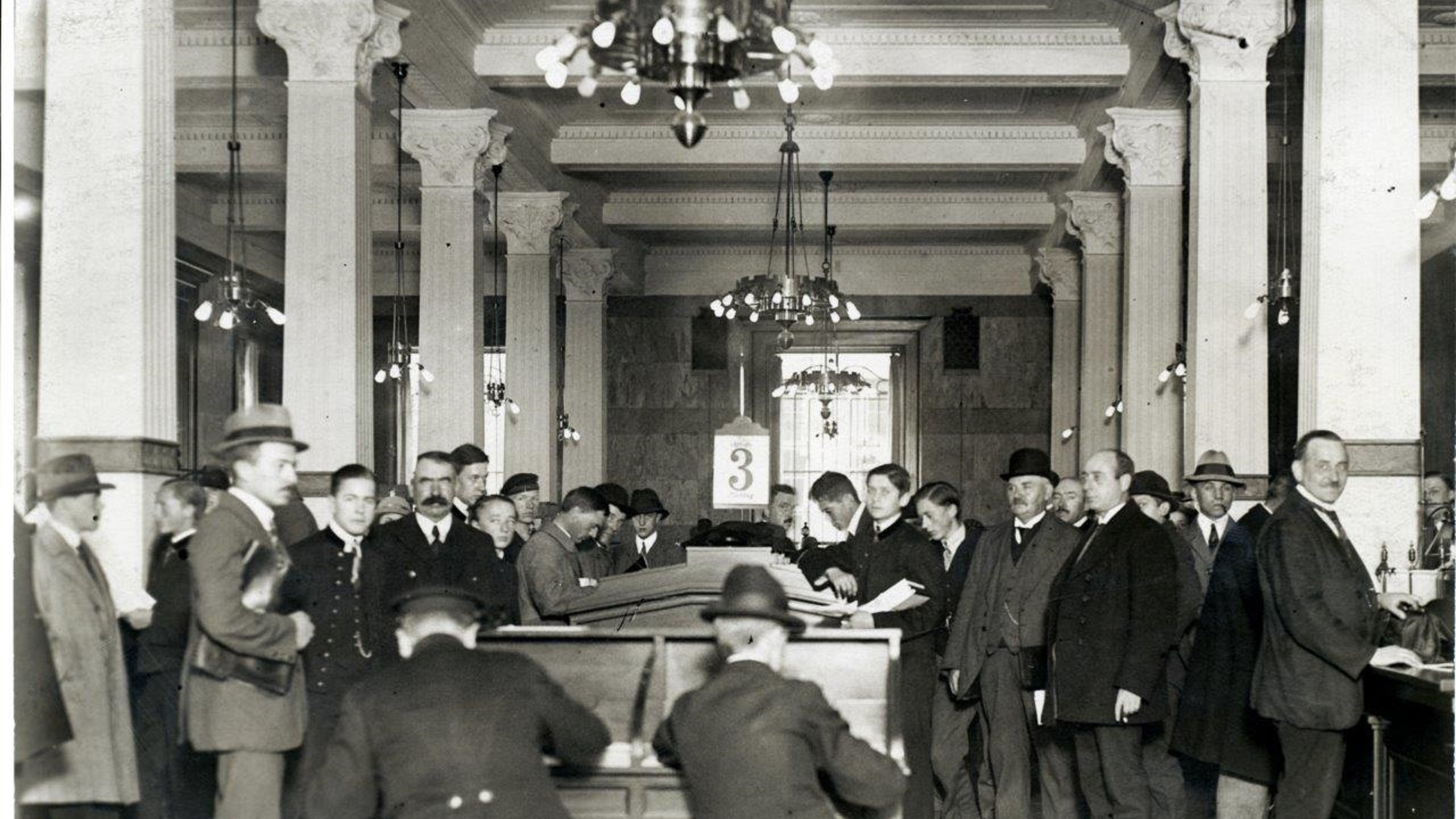
A.P. Møller was asked by the Danish government to take up the presidency of Danske Bank
He remained the Chair until 1952, taking the bank from public to private ownership. During this time, A.P. Møller and the shipping companies invested in the bank.
1940
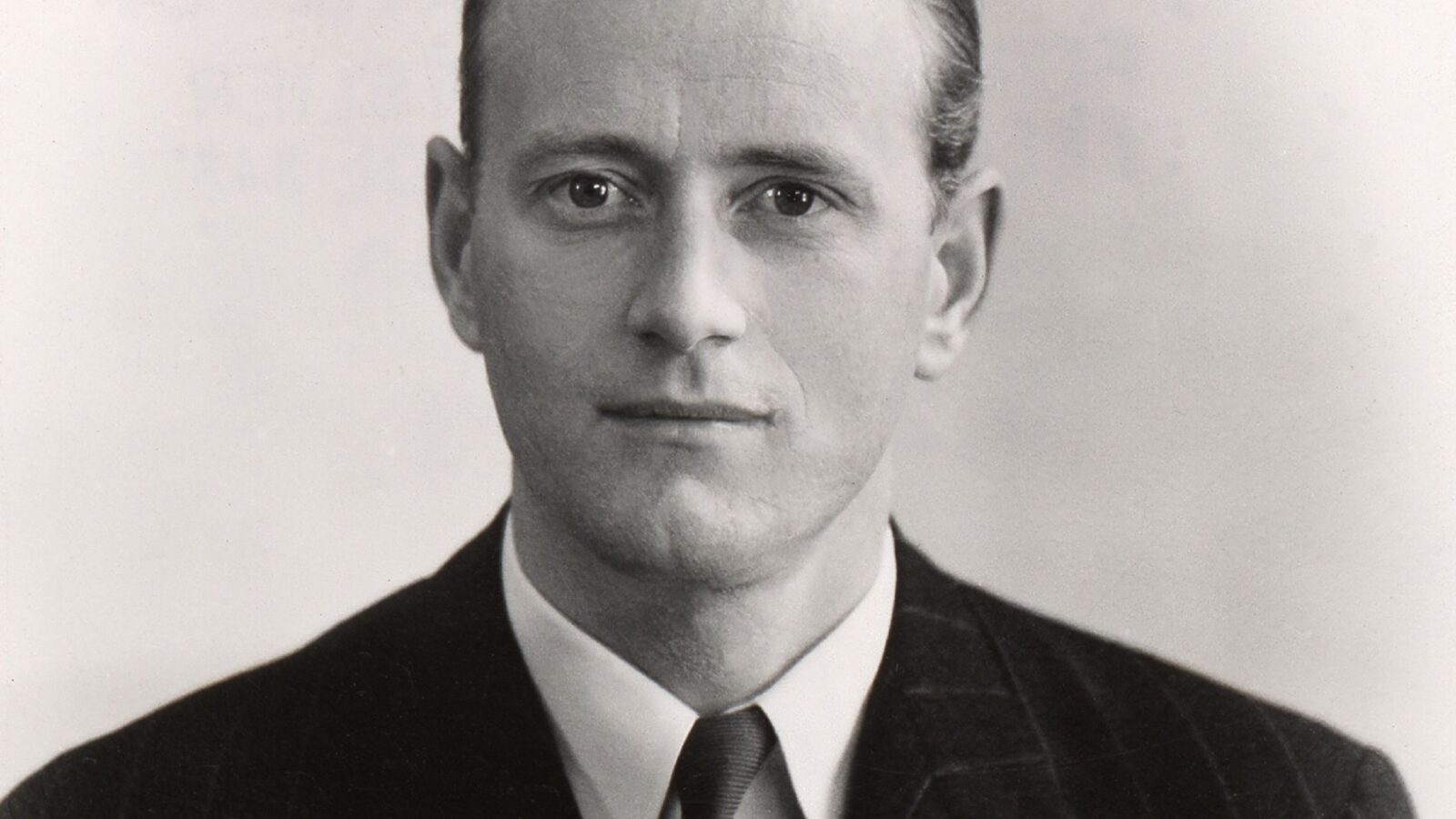
The family partnership
Mærsk Mc-Kinney Møller became a partner in “Firmaet A.P. Møller”.
1953

The A.P. Moller Foundation as an owner
The A.P. Moller Foundation was established to ensure a long-term, stable ownership structure of the Maersk activities. A.P. Møller was the Chair, and Mærsk Mc-Kinney Møller was a board member.
1962
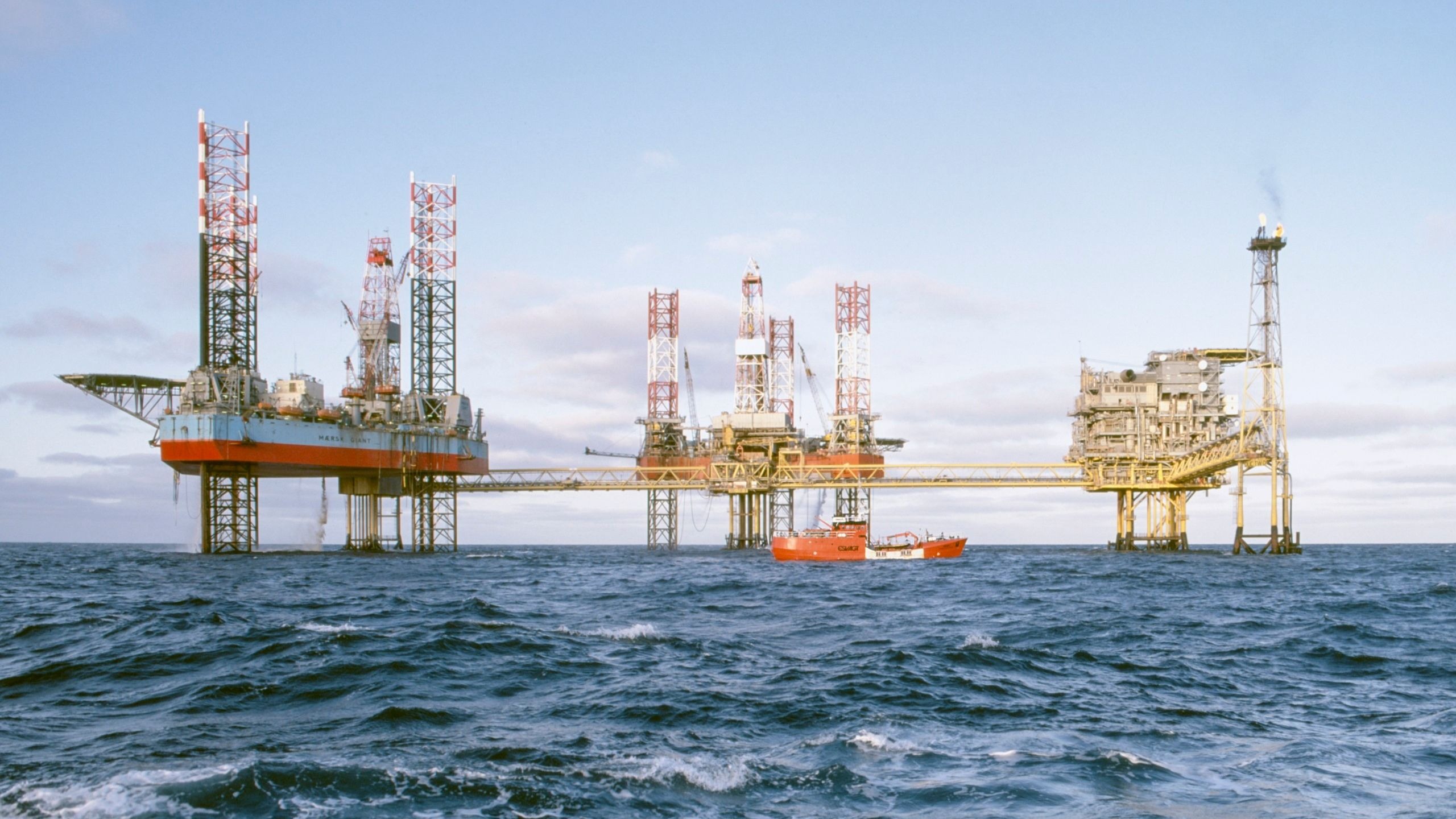
Into energy - for the greater good
A.P. Møller, together with the Steamship Company Svendborg and the Steamship Company of 1912, was awarded the concession for exploration and extraction of raw materials in the Danish underground.
1965
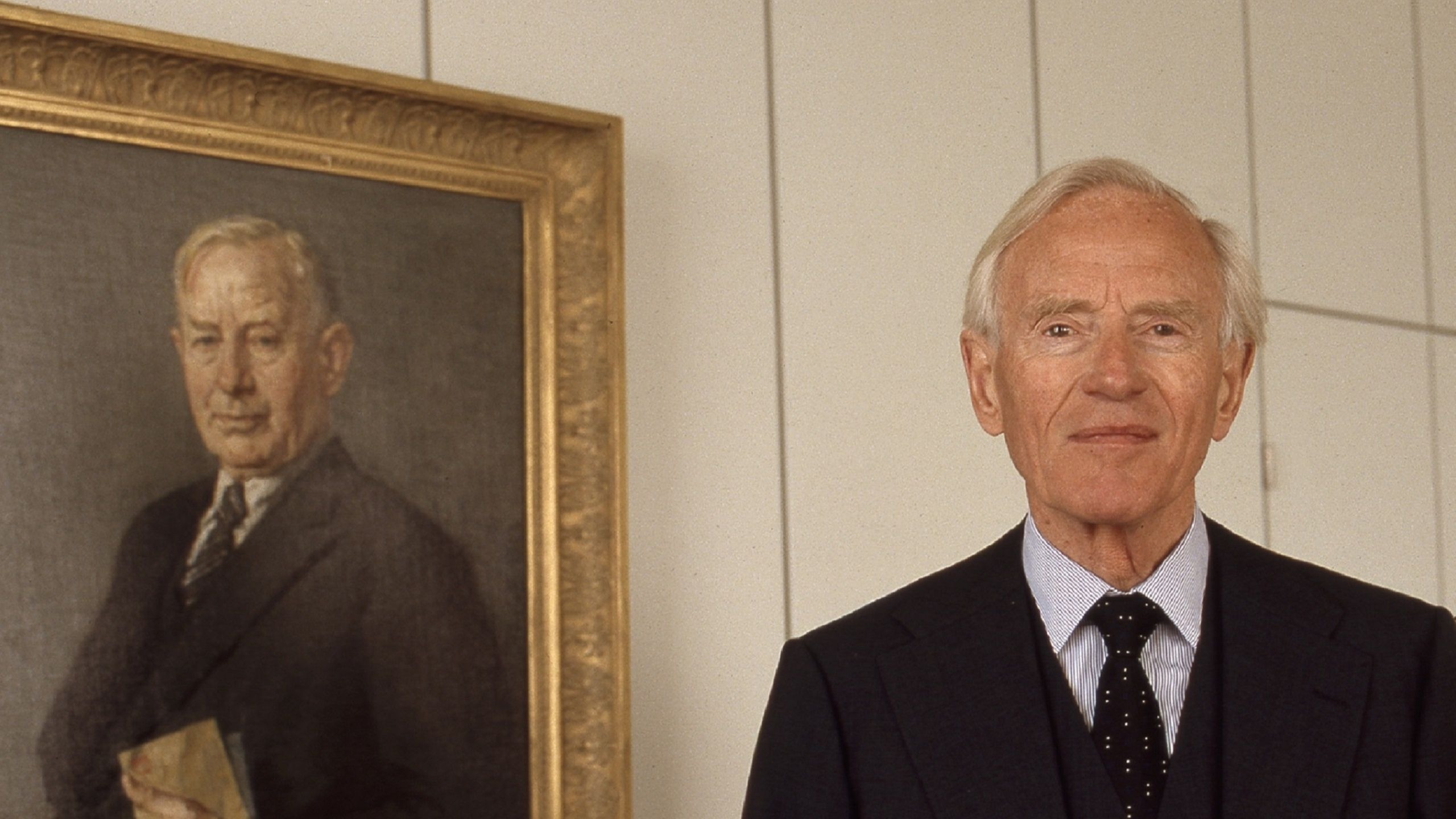
Mærsk Mc-Kinney Møller
Mærsk Mc-Kinney Møller became senior partner and Chair of the Svendborg and 1912 companies, the shipyard, other companies and the foundations after his father, A.P. Møller’s death on 12 June 1965.
1970
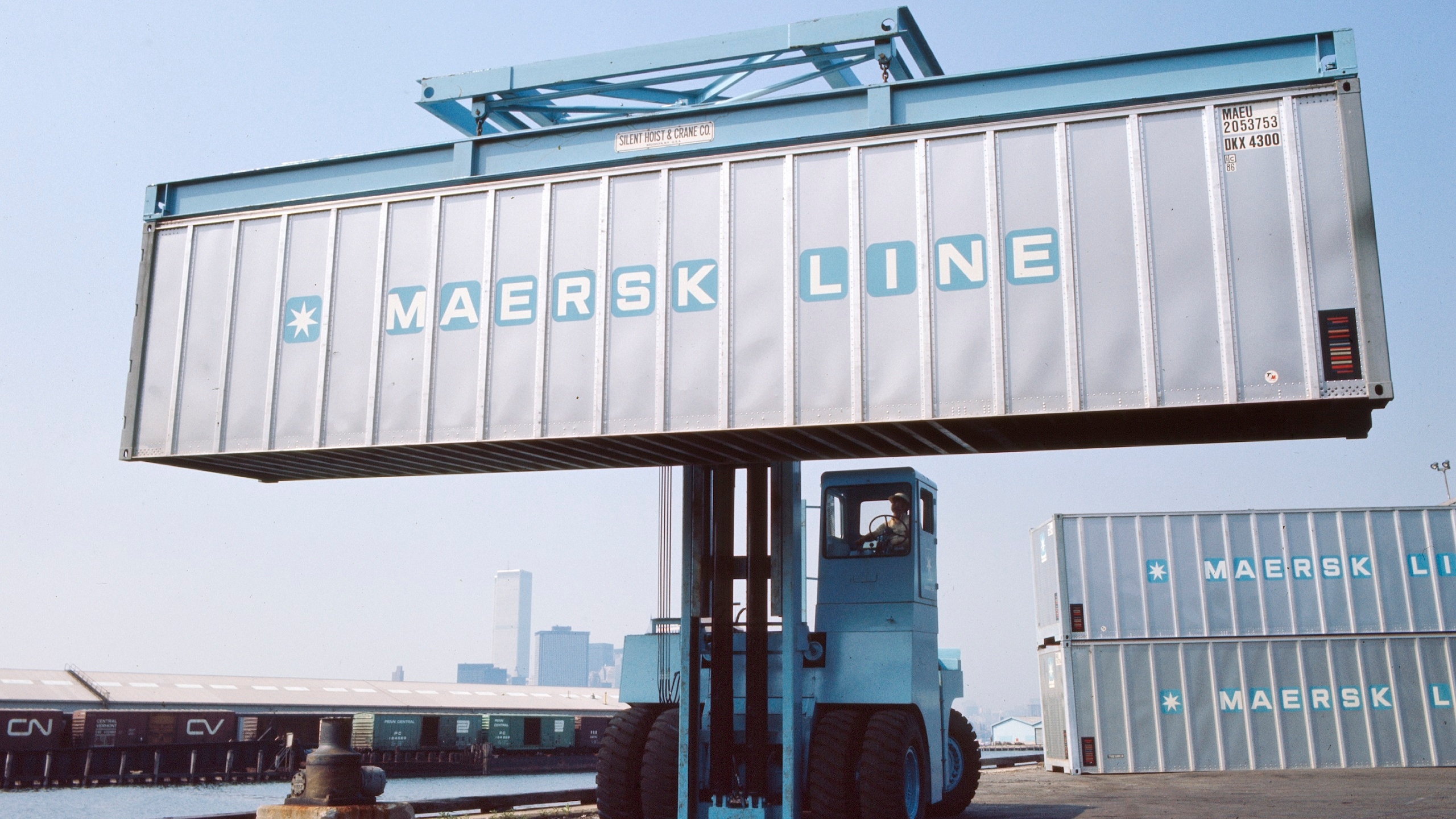
A strategy for the A.P. Moller Group
The direction for the next 45 years of expansion was laid in a strategy for The A.P. Moller Group.
1986
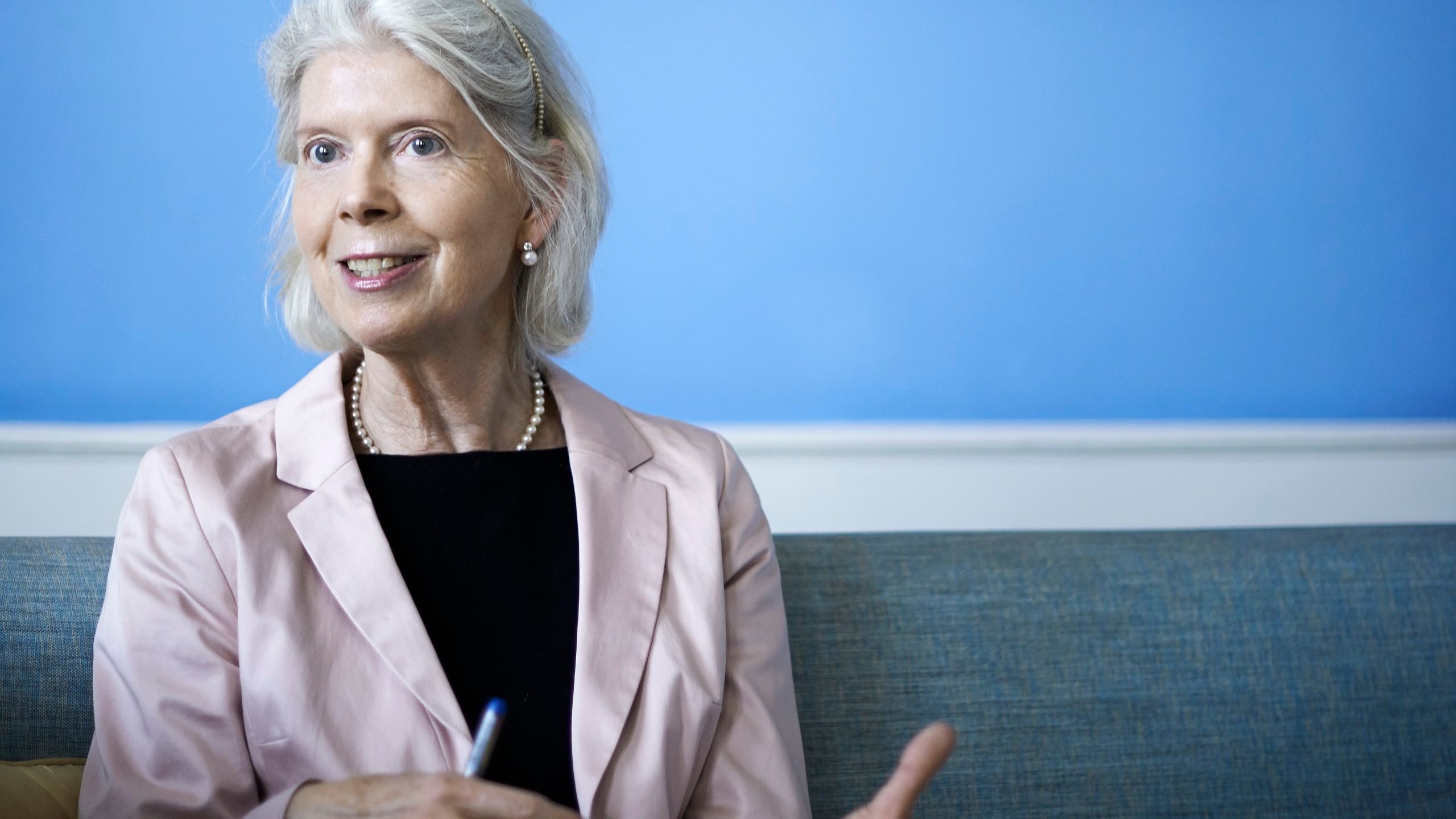
Engagement over time – the family in the Foundations
Ane Mærsk Mc-Kinney Uggla became a member of the board of the A.P. Moller Foundation, today’s owner of A.P. Moller Holding.
1993
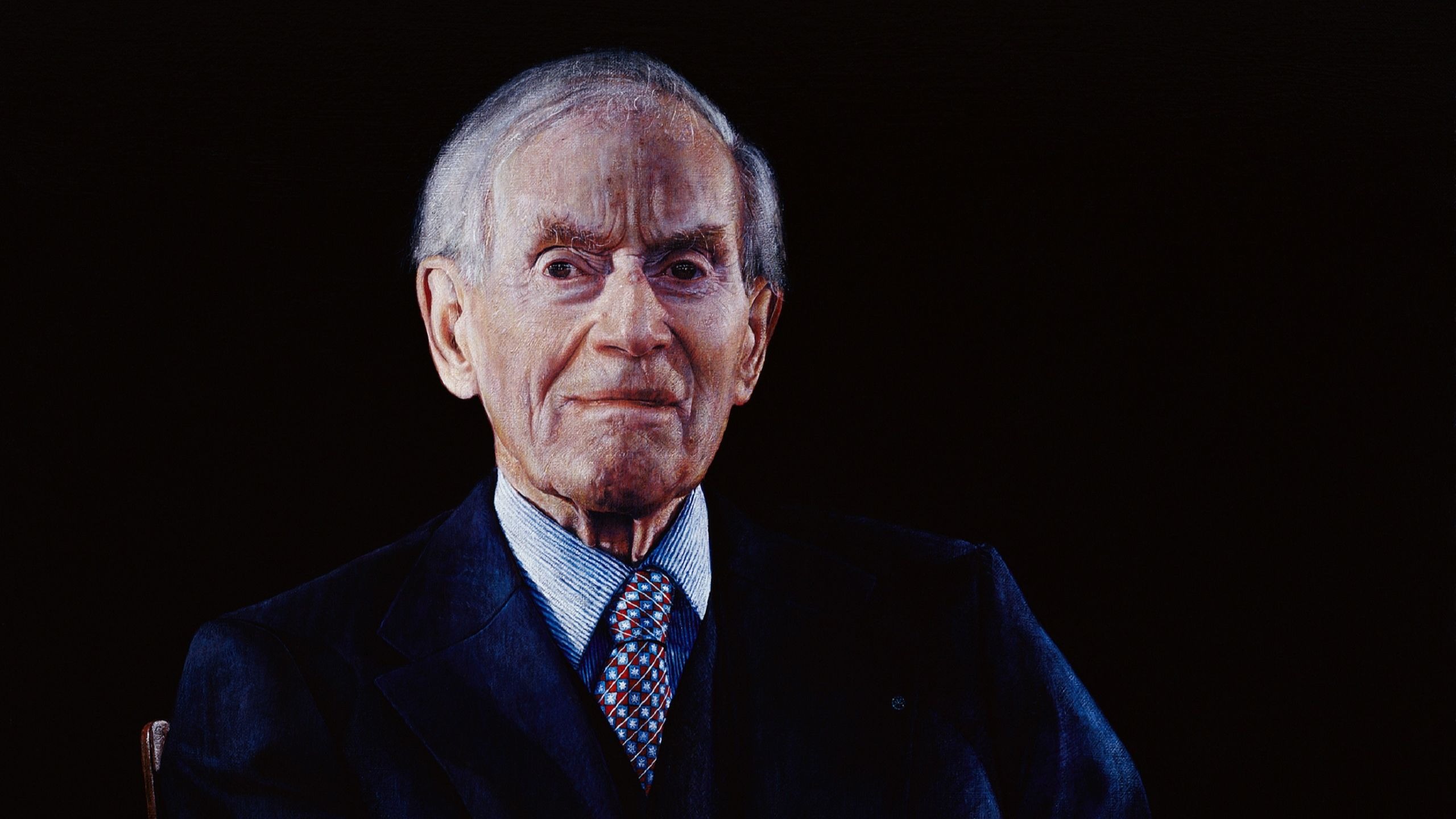
After 28 years at the helm of the Group, Mærsk Mc-Kinney Møller stepped down from daily management.
Mærsk Mc-Kinney Møller remained Chair of the Foundations, the Svendborg and 1912 companies and the Odense Steel Shipyard.
2003
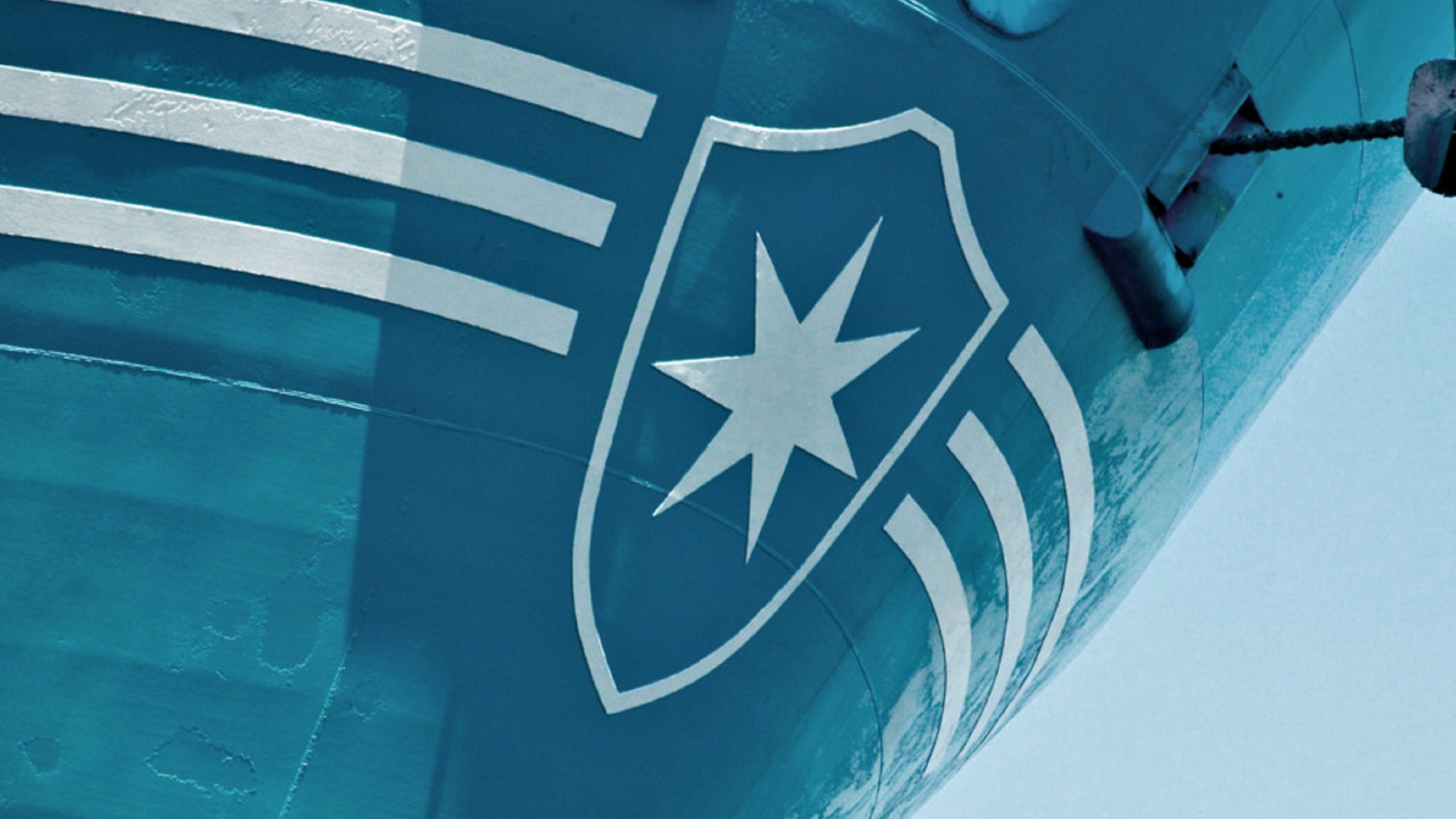
The origin of the Core Values
Mærsk Mc-Kinney Møller retired from most presidencies in the A.P. Moller – Maersk Group. Ane Mærsk Mc-Kinney Uggla became the Co-chair of A.P. Moller – Maersk. Mærsk Mc-Kinney Møller introduced the five Core Values, based on his father’s leadership principles.
2012
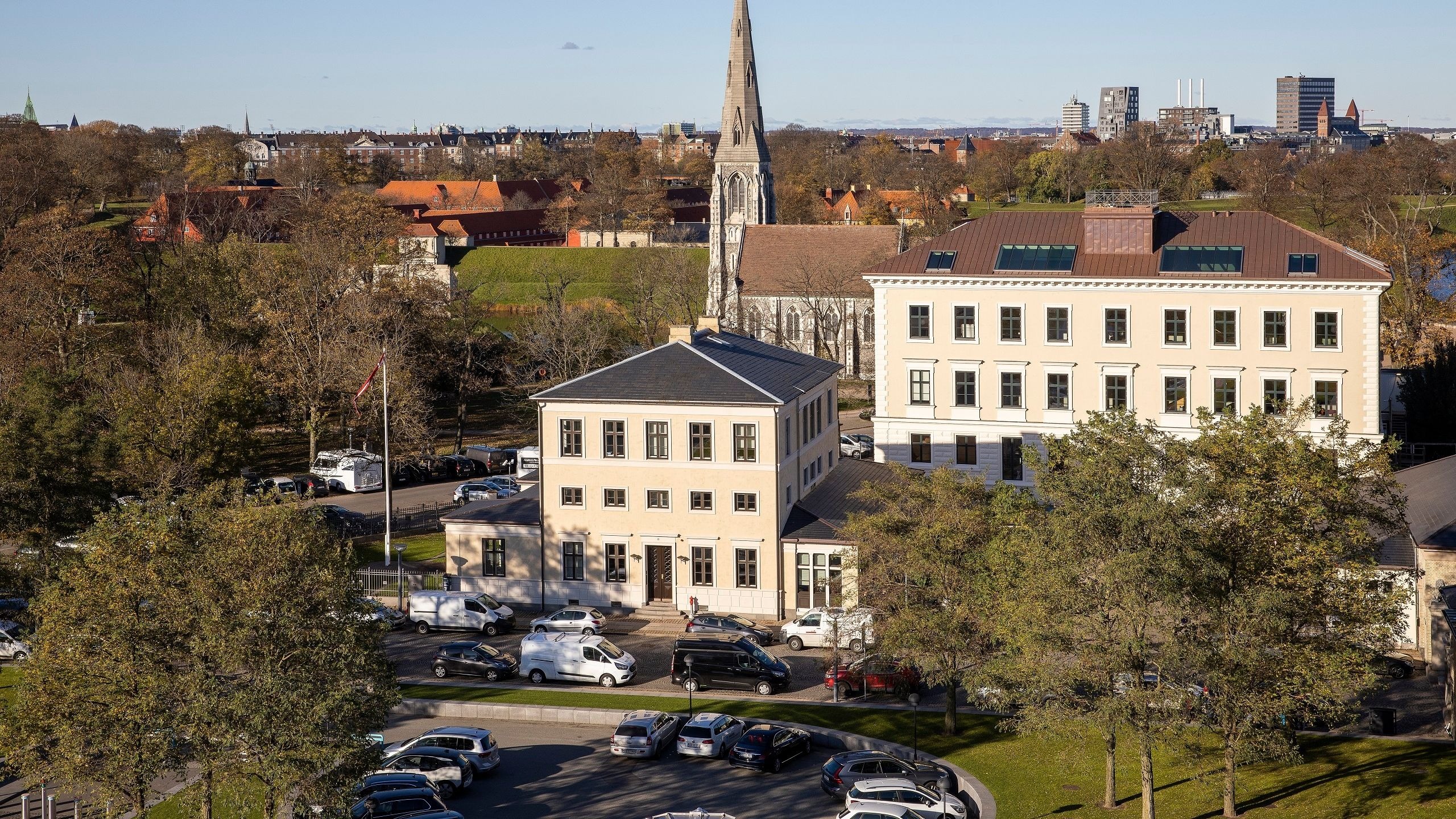
Ane Mærsk Mc-Kinney Uggla
Ane Mærsk Mc-Kinney Uggla became the Chair of the A.P. Moller Foundation when Mærsk Mc-Kinney Møller died on 16 April 2012.
2013
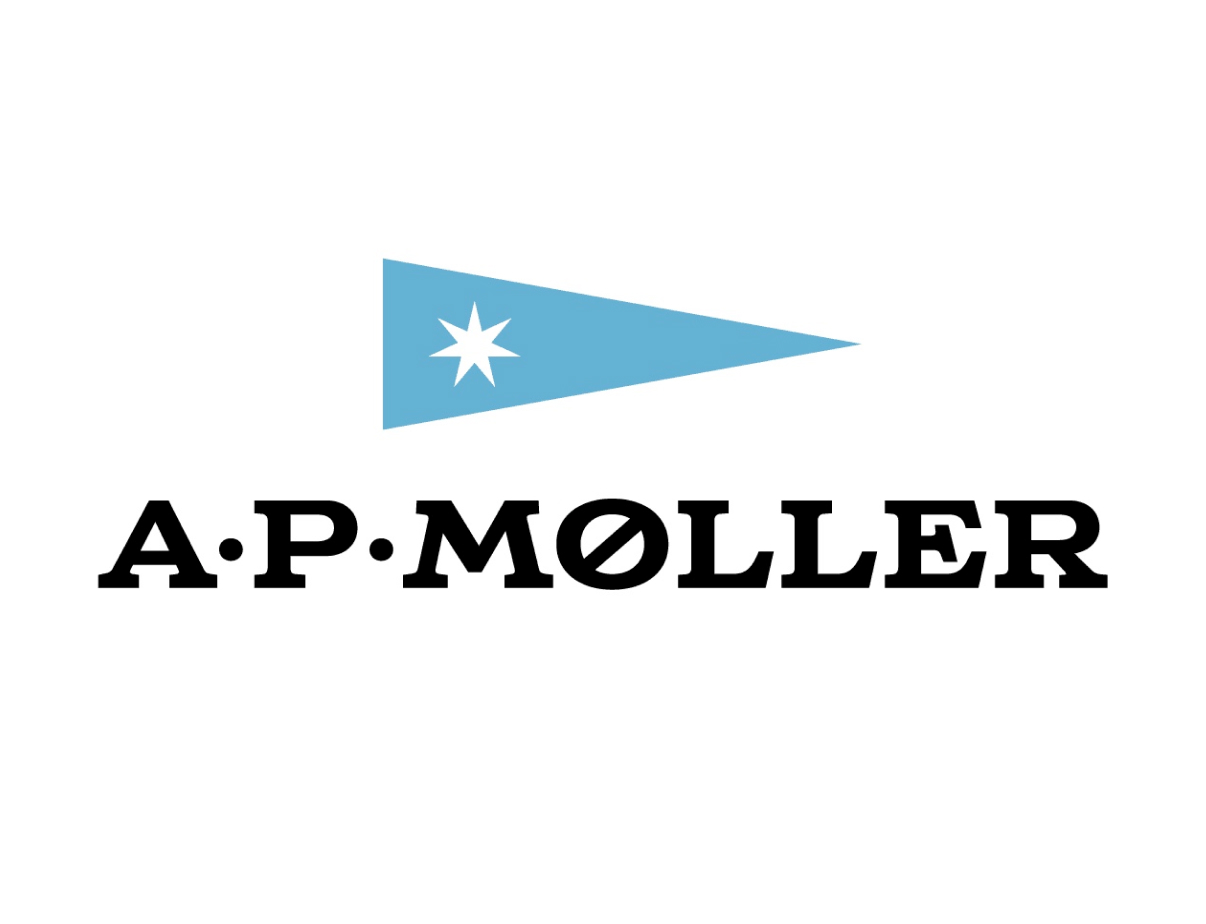
A.P. Moller Holding was established to act as the investment arm of the A.P. Moller Foundation
The majority ownership of A.P. Moller – Maersk was transferred to A.P. Moller Holding from the A.P. Moller Foundation. Ane Mærsk Mc-Kinney Uggla became the Chair of A.P. Moller Holding.
2015

A.P. Moller Holding
Adding to its 2.98% holding, A.P. Moller Holding acquired 15% of Danske Bank’s total share capital as part of A.P. Moller – Maersk’s divestment of the same. Following the 15% acquisition, A.P. Moller Holding bought an extra 2.02% to fulfill the ambition of a total ownership of 20%.
2016

Robert M. Uggla
Robert M. Uggla became the CEO of A.P. Moller Holding. A.P. Moller – Maersk was restructured into two independent divisions; an integrated Transport & Logistics division and an Energy division.
2017
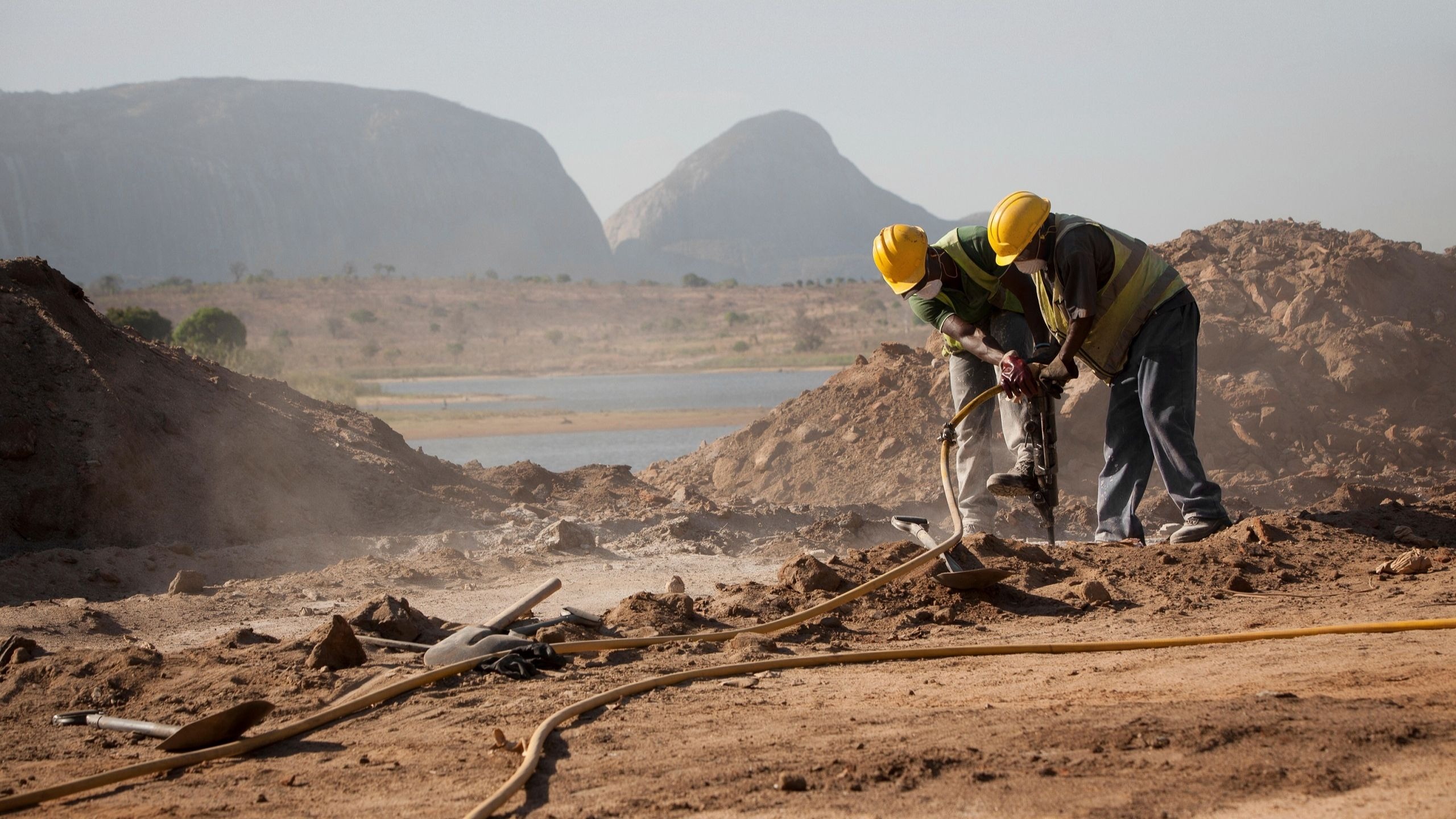
The Africa Infrastructure Fund
The Africa Infrastructure Fund was established by A.P. Moller Capital, which was founded to manage stand-alone funds focusing on infrastructure in emerging markets. Maersk Tankers was acquired by A.P. Moller Holding from A.P. Moller – Maersk.
2018
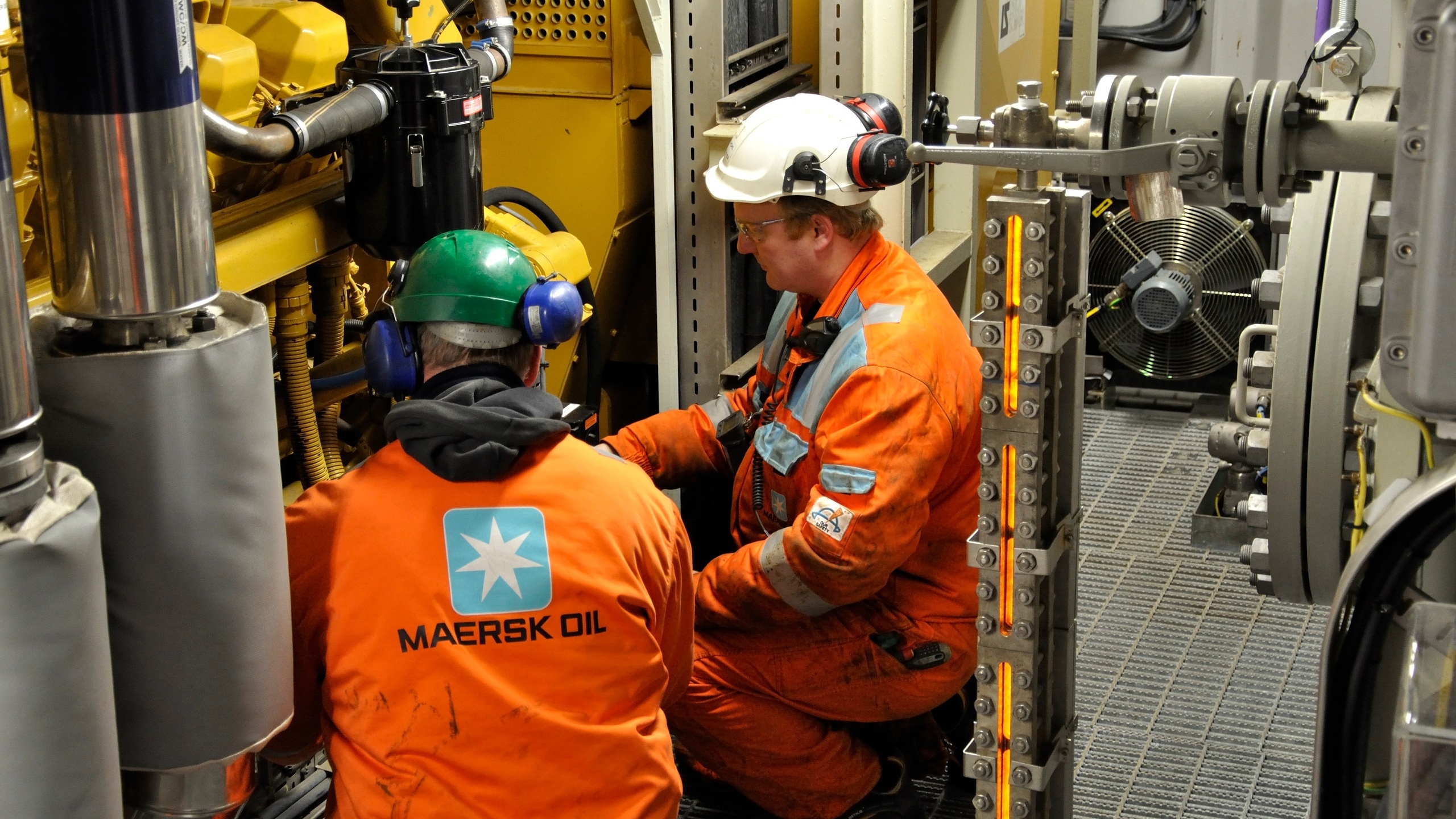
Maersk Oil
Maersk Oil was divested from A.P. Moller – Maersk to Total S.A.
2019
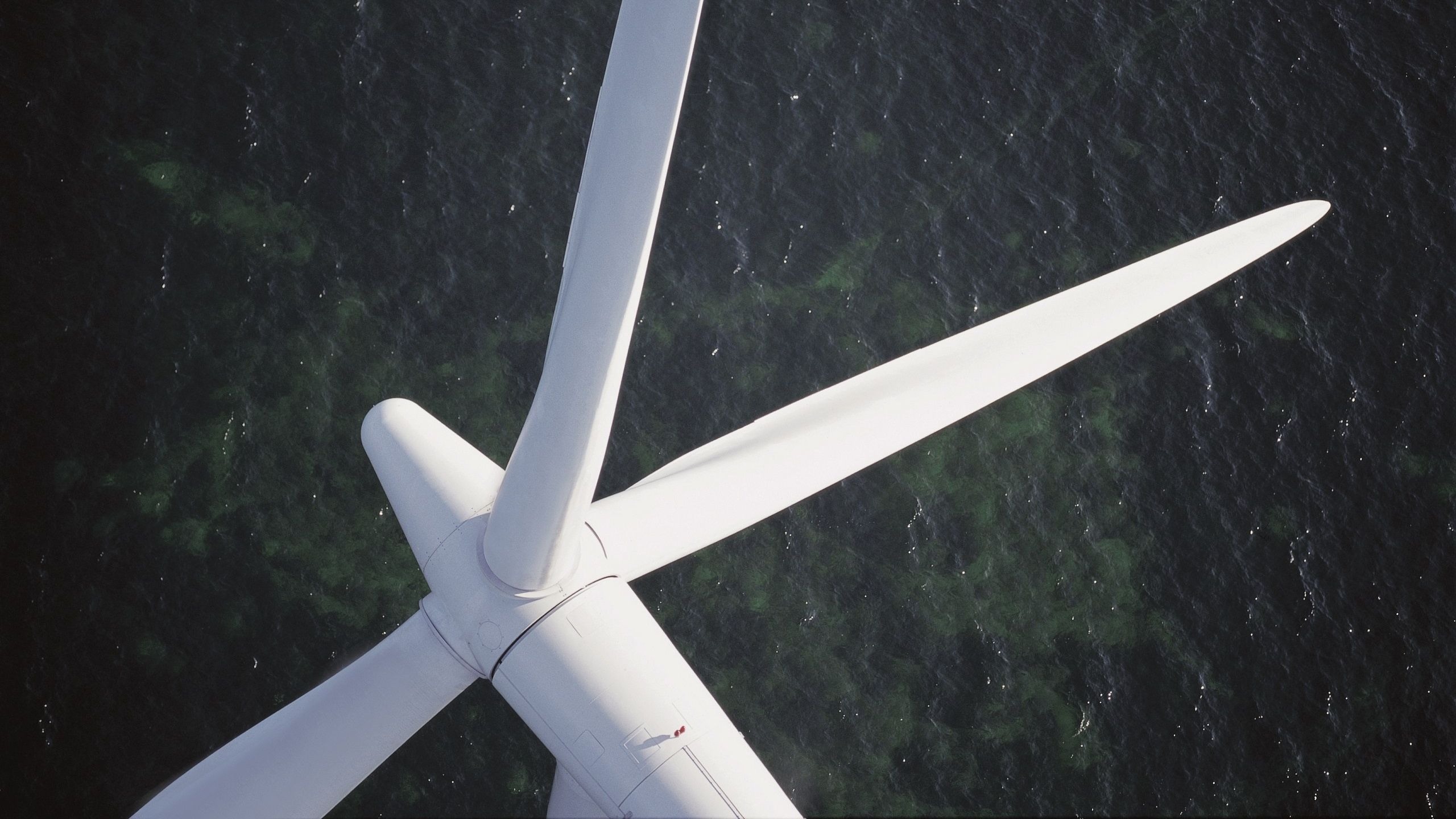
Maersk Drilling
At the public listing of Maersk Drilling, A.P. Moller Holding retained a 41.26% share of the company. A.P. Moller Holding acquired KK Group.